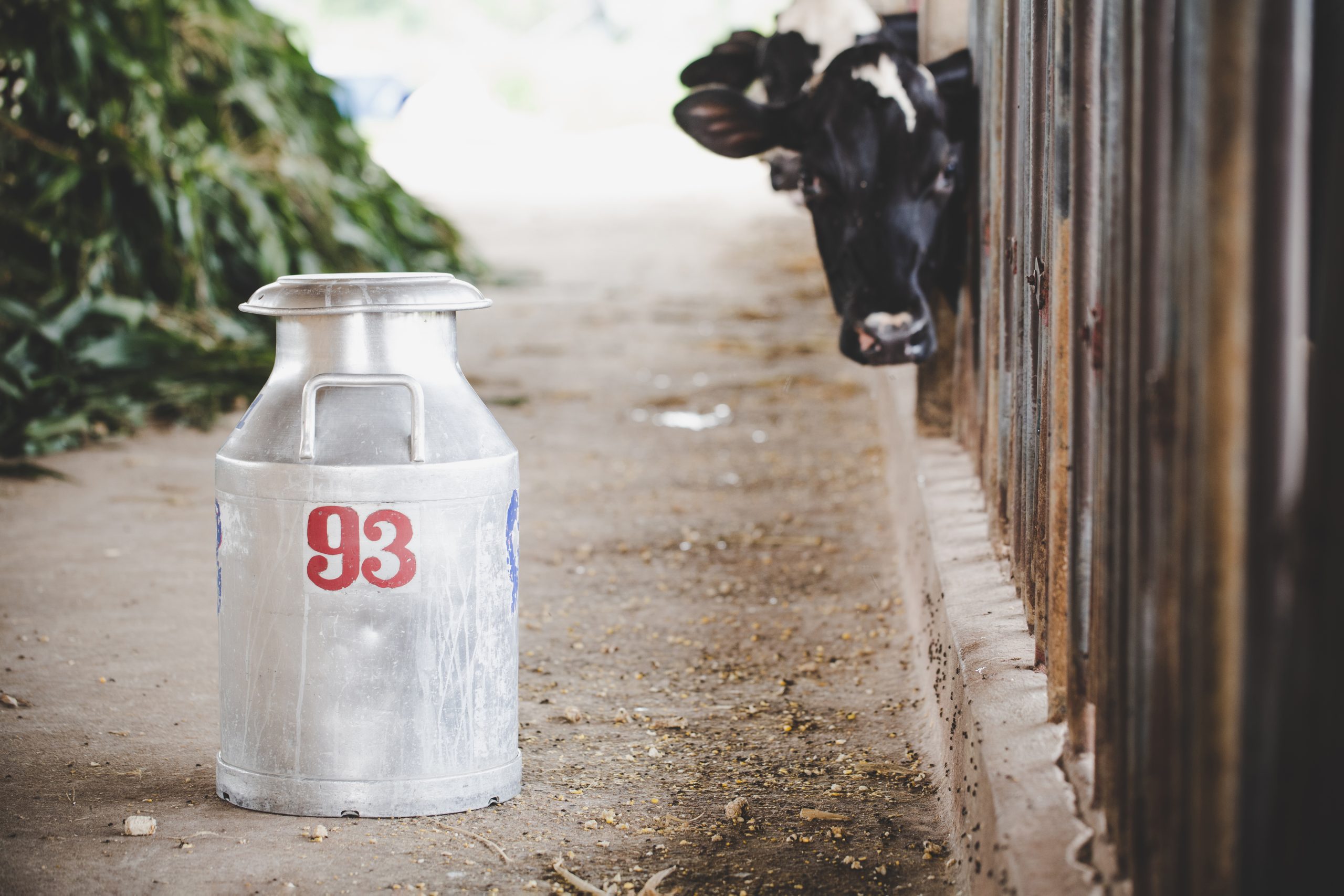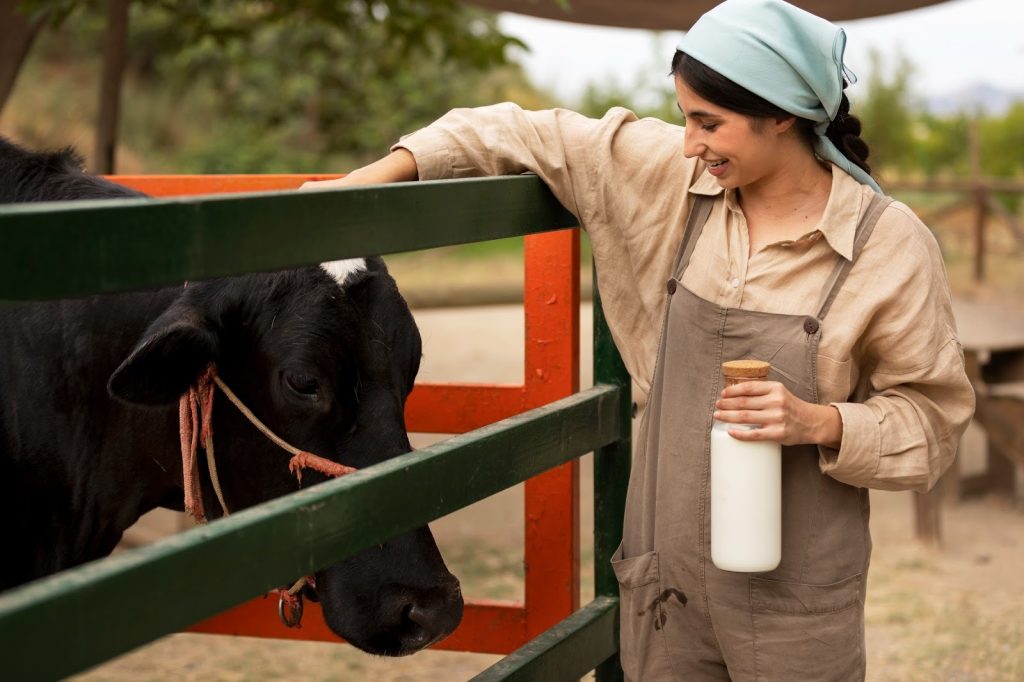Your cart is currently empty!
Michigan Lawmakers Introduce Bills to Legalize Raw Milk

A new effort by lawmakers in Michigan aims to make it legal to sell unpasteurized (raw) milk directly to customers. This move challenges a public health rule that has been in place since 1948. The proposed bills have started a big debate, pitting “food freedom” supporters and small farmers against a large, united group of public health officials, doctors, and the major dairy industry.
The new bills, introduced in November 2025, look to completely change the state’s long-standing ban on raw milk sales. The goal is to move raw milk out of a legal “gray area” and create a fully legal and commercial, though still regulated, way for farmers to sell it. This is a direct challenge to the state’s basic public health policy, which made Michigan the first state in the nation to require that all milk sold to consumers be pasteurized.
A New Three-Bill Legal Strategy

The 2025 plan is a carefully built three-bill package. It is led by Representative Matt Maddock (R-Milford) with support from 35 Republican co-sponsors and one Democratic co-sponsor, Representative Peter Herzberg. The three bills—House Bill 5218, House Bill 5217, and House Bill 5219—are “tie-barred.” This is a special legislative rule meaning all three must pass to become law, or none of them do.
This structure shows a much smarter legal plan than previous, failed attempts. A 2024 try by Rep. Maddock to change just one law was seen as legally weak. It would have likely clashed with other existing laws, like the Grade A Milk Law or the Food Law.
The 2025 tie-barred package is a complete legal move made to stop those problems before they start. It tries to change all three main pillars of the state’s dairy rules at the same time. This would ensure that new legal definitions, new exceptions to pasteurization rules, and a new regulatory system are all created at once, making the new system solid and legally strong.
In a big strategic change from the 2024 bills, the 2025 proposal clearly bans the sale of raw milk in grocery stores. The previous attempt, which would have allowed raw milk in stores, drew huge opposition from the grocery industry over fears of being sued. By limiting sales to “direct farm-to-consumer” only, supporters have changed the conversation. It is no longer a “raw milk in Kroger” bill. Instead, it’s a bill focused on informed customers who are actively trying to buy a specific product from a specific farmer.
A “Consume At Your Own Risk” System
The legislative package is designed to take apart the current legal system and build a new one. Each bill has a separate and needed job:
- HB 5219 (The “Definitional” Bill): This bill changes the state’s Food Law. It creates new, official legal definitions for terms like “Direct farm-to-consumer producer” and “Direct farm-to-consumer product.” This builds the legal framework for the other two bills.
- HB 5217 (The “Conforming” Bill): This bill changes the Grade A Milk Law. Its job is to make the needed legal exception to the state’s main dairy law, which currently says only pasteurized milk can be sold to consumers.
- HB 5218 (The “Core” Bill): This is the main part of the plan. It changes the Manufacturing Milk Law to officially allow and regulate “direct farm-to-consumer” sales of raw milk and raw milk products. It also sets the new quality standards, testing rules, and label requirements.
Quality Standards Without Enforcement

Under HB 5218, farmers selling raw milk would be exempt from state licensing and inspection by the Michigan Department of Agriculture and Rural Development (MDARD). Even with this hands-off approach, the bill sets its own list of technical quality standards that farmers must meet. These include:
- Temperature: Must be cooled to and kept at 45°F (7℃) or less.
- Bacterial limits: No more than 15,000 per ml.
- Somatic cell count: No more than 600,000 per ml.
- Coliform count: No more than 10 per ml.
- Disease: Animals must test negative for brucellosis or tuberculosis at least once a year.
This creates what some call a “phantom” regulatory system. It sets specific-sounding standards but, at the same time, removes the state agency (MDARD) that would normally enforce them. This means the system runs on the farmer’s word, not by state checks.
The most telling part is the new, required warning label. The 2024 bill had suggested a detailed public health warning. The 2025 bill gets rid of that for a “libertarian” label that reads: “This product is made with raw (unpasteurized) milk and may contain harmful bacteria. Not pasteurized. Not inspected by the Michigan Department of Agriculture and Rural Development. Consume at your own risk.” This change, moving from a health warning to a legal waiver, is a key part of the bills’ core idea.
Why Supporters Want “Food Freedom”

The push for legalization is built on three main ideas.
First is a philosophy of individual liberty and consumer choice, an idea shared by the 36 lawmakers co-sponsoring the bills. The “Consume at your own risk” label is the legal version of this thinking. It seeks to replace a government rule with personal responsibility. The core argument is that adults are aware of the risks and the government should not interfere in a peaceful sale between a farmer and a willing customer.
Second is growing consumer demand, which is backed by national groups like the Weston A. Price Foundation and its “Campaign for Real Milk,” the Farm-to-Consumer Legal Defense Fund (FTCLDF), and the Raw Milk Institute (RAWMI). This demand is driven by customers who believe raw milk offers “probiotic and digestive health advantages” and can help with issues like allergies and lactose intolerance.

The third argument is economic. The bills are presented as a way to support small, local farms. Legalizing direct-to-consumer sales would create a new, high-value product, allowing these farms to “make extra money” and tap into the “local food” movement. This idea also connects back to a 2012 state report that pointed to “state economic development” as a reason to encourage raw milk.
Doctors and Big Dairy Oppose the Plan
The legislative package faces a strong, united group of opponents from public health, medicine, and the main dairy industry.
State health officials at MDARD and MDHHS warn that raw milk is “unsafe,” carrying risks from germs like E. coli O157:H7, Salmonella, and Listeria. These can cause deadly illnesses, kidney failure, or miscarriages. They also point to a new, urgent threat: the bird flu (HPAI) virus found in dairy herds, which could potentially spread to people through unpasteurized milk.
The medical consensus is firm. The CDC notes that states allowing raw milk sales have more related outbreaks. The FDA states pasteurization kills germs without harming nutrition and that raw milk has no beneficial bacteria for gut health. The American Academy of Pediatrics (AAP), Mayo Clinic, and Michigan Hospital Association (MHA) are all completely against raw milk sales, with the AAP urging for more restrictive laws to protect children, who are at very high risk.
The established dairy industry, represented by the Michigan Milk Producers Association (MMPA), also opposes the bills. The MMPA, a huge part of the state’s $15.7 billion dairy economy, argues it’s a matter of brand protection and market fairness. A single outbreak, they fear, could be a PR disaster and damage the “Michigan” brand. They also argue the bills create an “unfair playing field,” allowing new producers to be exempt from the strict inspections and rules that MMPA farmers must follow, letting them sell a competing product under far looser standards.
Raw Milk Laws Across the USA

Michigan’s effort is not just happening in Michigan. It is part of a long-running, national push to deregulate raw milk. While the FDA banned selling raw milk between states in 1987, sales intrastate (meaning within a single state) are a “patchwork” of 50 different state laws. As of 2025, these laws fall into four general categories:
- Retail Sales Legal (13 states): The most permissive; allow raw milk in stores (examples: California, Pennsylvania).
- On-Farm Sales Legal (17 states): Ban store sales but allow buying directly at the farm (examples: Illinois, Arkansas).
- Herd-Share Only (8 states): Ban all sales, but allow the “legal-ish” cow-share deals. This is Michigan’s current “gray market” status.
- All Sales Prohibited (20 states): A total ban on giving out raw milk for people to drink.
The 2025 Michigan proposal is an attempt to move the state from the restrictive “Herd-Share Only” group to the more permissive “On-Farm Sales Legal” group. This matches the idea behind the federal “Interstate Milk Freedom Act,” which has been introduced in Congress to stop federal interference with transporting raw milk between states.
A State’s Conflicted Past on Raw Milk

This entire 2025 legislative fight didn’t come out of nowhere. It’s the result of a long and confusing disagreement in Michigan’s own policies. On one hand, the state has banned raw milk sales since 1948, lining up with all major health warnings. On the other hand, for years the state has looked the other way at a legal “gray area” called “herd-shares,” where people buy a “share” of a cow instead of the milk itself. In 2013, the state’s agriculture department (MDARD) even adopted an internal policy saying it wouldn’t inspect these herd-shares, officially creating a hands-off, unregulated market.
This conflicting stance, publicly warning that raw milk is dangerous while privately allowing an uninspected market for it, created the perfect opening for today’s debate. This strange situation was born from a 2012 state workgroup (which included a state official) that issued a stunning report claiming raw milk was “not inherently dangerous” and “more nutritious.” Today, even though MDARD has completely reversed that 2013 position, supporters of the new bills are using that history as their main argument. They are essentially asking the state to legalize what its own report once seemed to encourage, forcing lawmakers to finally pick a side.
